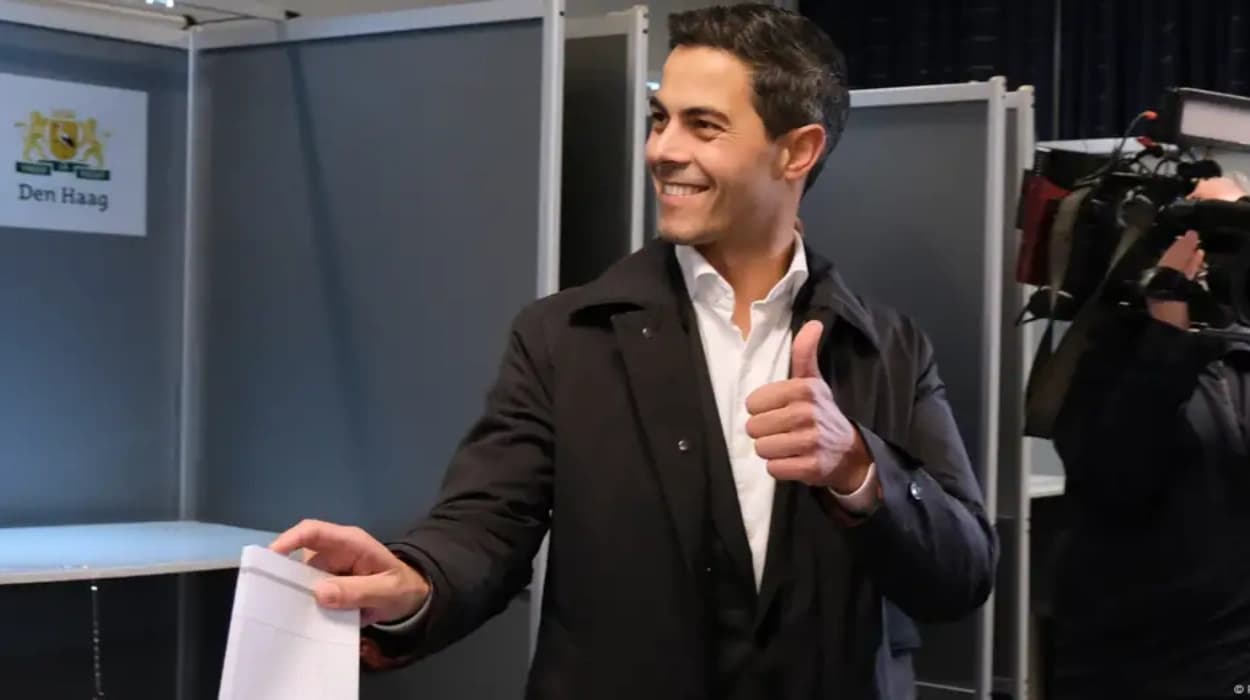Initial Dutch exit polls show centrist D66 narrowly ahead of
Geert Wilders’ Freedom Party, opening a path for Rob Jetten to become the
Netherlands’ youngest prime minister.
Voters in the Netherlands cast ballots in a fiercely contested national election on Wednesday, which is seen as a significant test of the extreme right's power in Europe.
The Christian Democrats, led by new leader Henri Bontenbal, who pledged stability and "traditional values," and D66, led by Rob Jetten, who had garnered support with a platform centered on housing and education, presented the PVV with new challenge.
Since no single party will be able to secure 76 seats to govern alone due to the Netherlands' fragmented system, protracted coalition negotiations are all but likely, and the political future of the nation remains uncertain.
Wilders seemed to acknowledge that his team would not win.
"The voter has spoken. We had hoped for a different outcome but we stuck to our guns,"
Wilders wrote on X, following the exit polls.
After two years of unstable conservative leadership, the vote was a crucial test for Dutch voters to determine if they would return to the political center or strengthen Wilders' anti-immigration stance. When he pulled backing over disagreements over immigration policy, his previous coalition fell apart in June.
During his campaign, Wilders, who goes by the name "Dutch Trump," promised to reroute development funds toward domestic expenditure and to reject all asylum applications, which would be against EU regulations. He told AFP news agency that "people are fed up with mass immigration and the change of culture."
Wilders had little prospect of winning the prime ministership before the poll. He has been rejected by all major parties, including conservative Christian Democrats and the center-right People's Party for Freedom and Democracy (VVD).
How might Wilders' PVV respond to a D66-led coalition?
Geert Wilders’ Party for Freedom (PVV) is likely to respond
to a D66- led coalition with sharp opposition and attempts to impact policy
from outside government. Having exited the governing coalition before in 2025
over dissensions on immigration policy, Wilders has deposed his party as a
loyal critic of moderate and left- leaning parties like D66.
Wilders and the PVV advocate for strict immigration controls and nationalist programs, which are in disagreement with D66’s moderate and further progressive station.
The utmost other major parties have ruled out forming a coalition with PVV, effectively banning Wilders from government participation. This likely means PVV will concentrate on rallying its name base and mounting administrative opposition rather than sharing in power- participating arrangements.
